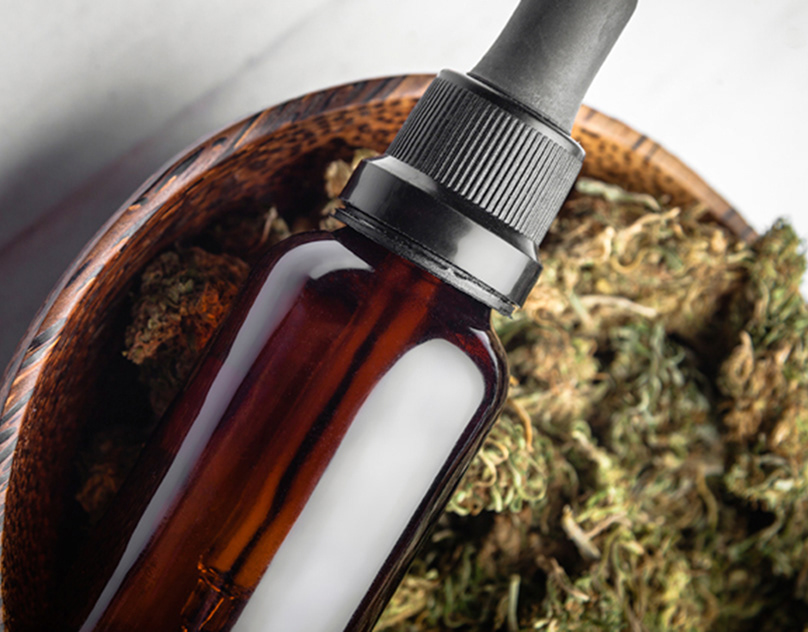
CBD dosage for painThe dose of CBD oil for pain can vary significantly. For mild pain, such as mild arthritis, mild PMS pain, or lower back pain, a light or moderate dose of CBD oil usually helps. For more severe pain, nerve pain, treatment-resistant multiple sclerosis, or cancer pain, you will probably need a large dose of CBD oil.
Some people immediately experience the analgesic properties of CBD oil, others need to take the oil for several days or weeks before they notice any improvement.
The time it takes to notice an improvement depends on the underlying condition causing the pain. Inflammatory pain, cancer pain, or endometriosis pain can last for a long time - while arthritis pain, digestive pain, muscle pain, and PMS pain usually decrease within a few hours after taking CBD oil.
For arthritis or joint pain, you can get a faster effect by using a CBD pain cream along with CBD oil.
CBD dosage for insomniaCBD oil has been shown to improve both the quality and duration of sleep, but studies have shown that the effective dose of CBD oil for sleep is higher than for other conditions. Try to consume a higher than average dose of CBD oil if your goal is to improve your sleep.
Low doses of CBD (less than 10 mg) can have a stimulating effect, while higher doses (20 mg or higher) tend to have a much more sedative effect. The more CBD oil you use, the stronger the sedative effect.
Some types of CBD extracts also have a stronger effect on sleep. For example, CBD oils containing sleep-supporting terpenes, such as linalool, bisabolol, lavandin or myrcene, have a strong sedative effect. As you know, if the oil contains only cbd isolate, then naturally there are no terpenes there. You can read more about terpenes in our article
You can also find CBD oils that contain melatonin to make the oil even better for better sleep.
CBD dosage for depressionCBD oil is useful for treating the symptoms of many mood disorders, including depression. Finding the right dose of CBD oil for depression may require some trial and error. The main processes that cause depression do not happen overnight, and they also will not disappear overnight. It may take several weeks or months of constant intake of CBD oil supplements - along with other lifestyle changes - before you can expect any real improvements.It's best to start with a mild or moderate dosage of CBD oil for a few weeks before moving on to a large dose once you understand how CBD affects your body individually.
Calculating the CBD dose based on your weightAlthough the dose of CBD is unique to everyone, there is a general rule of thumb that can be used to determine the calculated dose depending on your weight and desired effects (low, medium and high dosages). These doses are approximate and should not be used in place of professional medical recommendations regarding dosage.
We recommend that you start with a low dosage when using CBD for the first time and gradually increase it. Gradually you will find the right one for your body. If you are experiencing side effects, then you have found your upper limit. Reduce the dose to the last one that does not cause side effects.
Calculation of the CBD dose by weight:Low dosage - 2 mg per 10 kgThe average dosage is 7 mg per 10 kgHigh dosage - 13 mg per 10 kg
What concentration of CBD should I use?The more CBD you take, the stronger the effect. Some conditions require relatively high doses of CBD to bring any benefit, others may require only a small amount to get noticeable results.
Ask yourself, "What am I using CBD oil for?"This is an important question to ask because it will help you choose the right dose.Recommended dosage depending on the condition:Anxiety - from medium to highArthritis - from medium to highOncology, Cancer - high or pharmaceuticalChronic pain - from moderate to highColitis and inflammatory bowel disease - from medium to highEpilepsy - high or pharmaceuticalGeneral health (prevention) - lowHigh blood pressure - from medium to highMigraine - from mild to highMuscle recovery - from low to mediumNausea - from mild to moderatePolycystic Ovary Syndrome (PCOS) - low to mediumPremenstrual syndrome (PMS) - from low to highInsomnia - from medium to highWeight loss - from low to medium |

